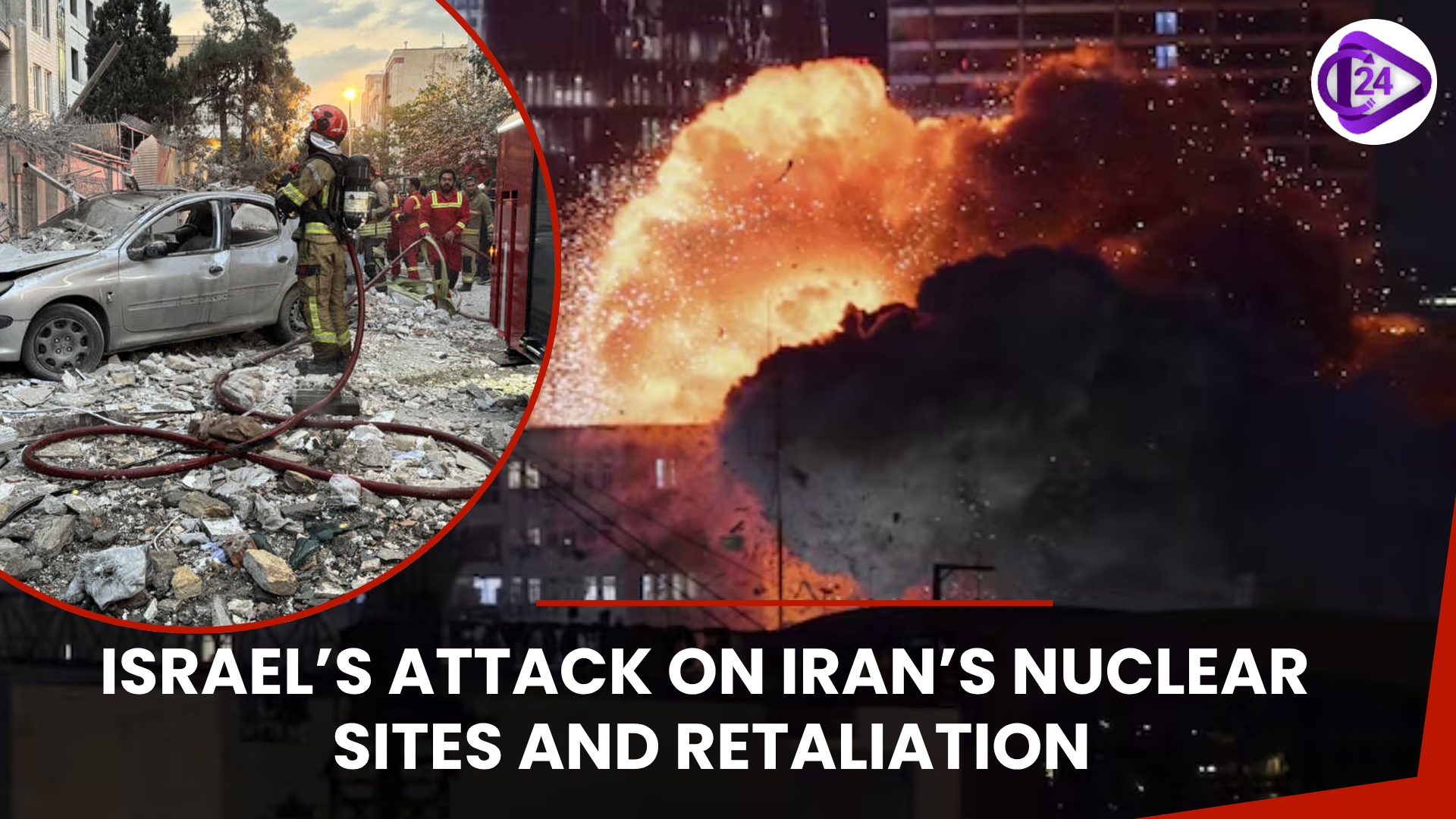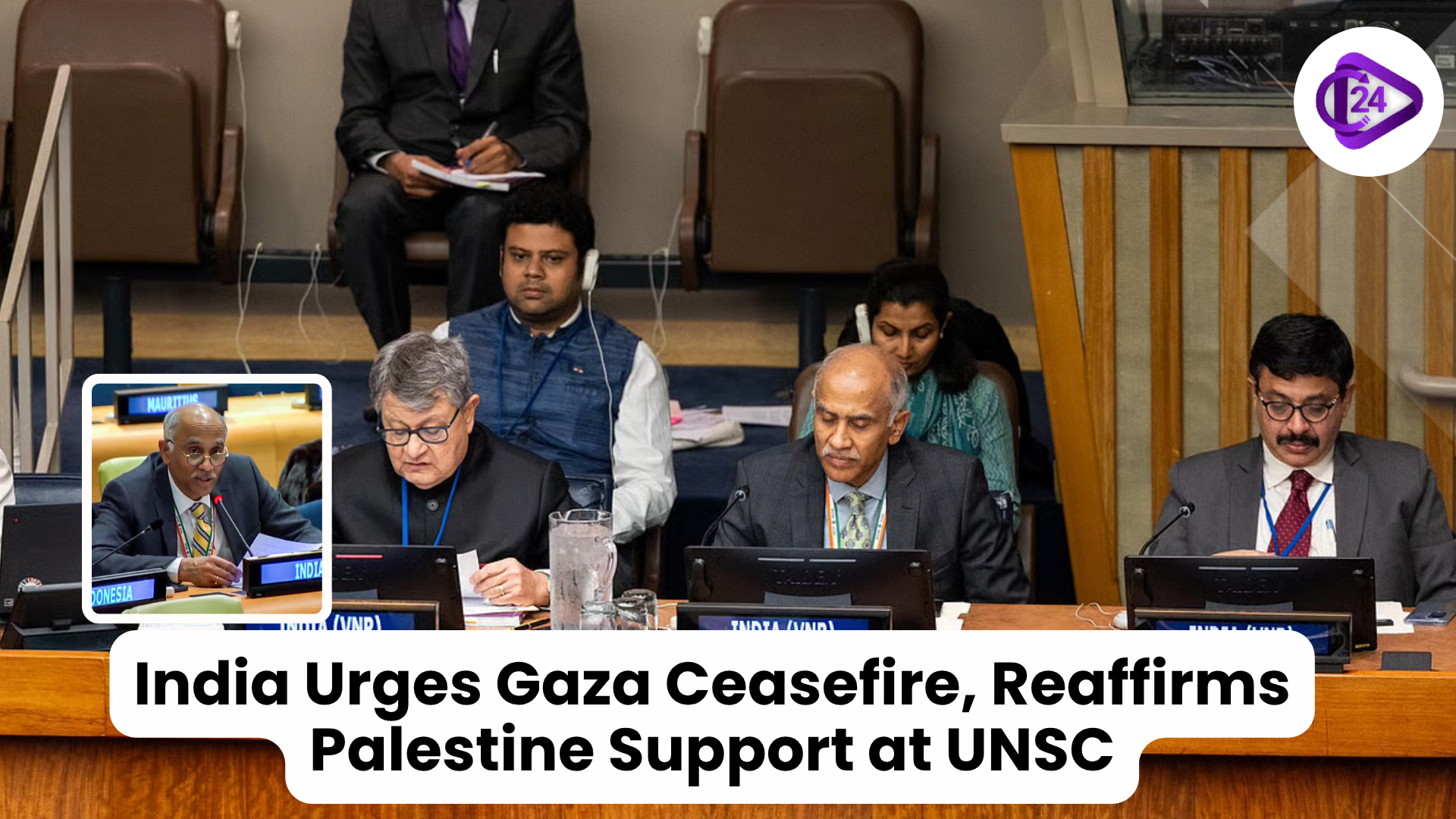
The latest flare up between Iran and Israel has got the whole world concerned. Israel carried out a round of preemptive airstrikes against the nuclear and military sites in Iran, and Iran responded by launching missiles into Israel. The attacks have led to high losses on both sides and have caused concerns of the possibility of a bigger war. The current crisis illustrates the geopolitics of the nuclear aspirations of Iran and the security affairs of the region.
Israel's Preemptive Strikes on Iran (Friday, June 14, 2025):
-
Specific Locations: Israel conducted airstrikes and drone attacks against major military and nuclear installments of Iran.
-
Significant ones were the Natanz and Fordo nuclear enrichment plants and a nuclear research facility in Isfahan.
-
Iranian Generals Killed Top Iranian Generals Among those killed were three top Iranian military officials who were:
-
Gen. Mohammad Bagheri (armed forces)
-
Gen. Hossein Salami (Revolutionary Guard)
-
Gen. Amir Ali Hajizadeh (ballistic missile program).
-
-
Israel Justification: Israel claimed that the attacks were justified to prevent Iranian movement towards developing nuclear weapons, which Israel considers an existential threat to the country.
Iran’s Retaliation:
-
Missile Attacks: Iran struck in waves of ballistic rockets against Israel, blowing up in Jerusalem and Tel Aviv.
-
Casualties: Two individuals were murdered in Rishon Lezion, and a number of others were hurt in Tel Aviv.
-
Destruction: The homes and buildings in Israel were damaged by the Iranian missiles.
-
Iranian Response: Iran promised to retaliate, terming the Israeli action as a case of state terrorism, and launched drones and missiles into Israel.
International Reactions:
-
Role of UN: At the request of Iran, the UN had an emergency meeting over this issue where it condemned the actions of Israel. The Foreign Minister of Iran termed the Israeli attacks as a crime and said that Iran has the right to defend itself.
-
U.S. Position: The United States, although not party to the Israeli attack, had cautioned Israel against acting to precipitate a conflict with Iran. U.S. air defense shields in the area helped down some of the Iranian projectiles.
Israeli Military Operations:
-
Airstrikes: According to Israel military, airstrikes involved approximately 200 planes, and the aim of the airstrikes was to incapacitate the nuclear program and military facilities of Iran.
-
Israel also deployed explosive drones against Iranian air defenses and missile launchers.
-
-
Natanz Facility: The above ground part of the Natanz facility was severely damaged which isolated power to important infrastructure. But the underground centrifuges were preserved.
-
Strike Duration: Israeli officials stated the attacks might continue for up to two weeks, depending on the situation.
Concerns about Escalation:
-
Danger of Full-Scale War: There has been increased anxiety that the developing violence might attract full-scale war between Israel and Iran further destabilizing the region.
-
Hezbollah Reaction: Hezbollah, the ally of Iran condemned the actions of Israel but did not directly take part in the retaliation of Iran.
Global Diplomacy & U.S. Actions:
-
U.S. Diplomatic Movements: The U.S. began repositioning military resources in the region and evacuated some diplomats from Iraq to prepare for potential further escalation.
-
U.S. Pressure on Iran: Former U.S. President Donald Trump urged Iran to reach a nuclear deal with the U.S. to avoid further conflict.
Israel’s Ongoing War with Gaza:
-
Distraction to Gaza: The raids on Iran were also a distraction to the continued war that Israel was facing in Gaza which has resulted in massive casualties.
-
Public Opinion: Although the general opinion in Israel favors the attacks on Iran, the opinion may change on the continued retaliation and loss of life.
Conclusion
The Israel-Iran conflict of June 2025 has intensified regional instability, with both countries suffering casualties and infrastructure damage. The death of key Iranian military figures has escalated tensions further. International powers, including the UN and the U.S., have called for restraint. As missile exchanges continue, concerns of a full-scale war loom large. Diplomatic efforts in the coming weeks will be critical in de-escalating the situation.



 India–UAE Defence Cooperation Strengthens at 13th Joint Defence Cooperation Committee (JDCC) Meeting
India–UAE Defence Cooperation Strengthens at 13th Joint Defence Cooperation Committee (JDCC) Meeting Bold Kurukshetra 2025 to be Hosted in Jodhpur: Strengthening India- Singapore Defence Ties
Bold Kurukshetra 2025 to be Hosted in Jodhpur: Strengthening India- Singapore Defence Ties India-Maldives Strategic Ties: 6 MoUs Signed and ₹4,850 Cr Line of Credit Extended
India-Maldives Strategic Ties: 6 MoUs Signed and ₹4,850 Cr Line of Credit Extended India Calls for Gaza Ceasefire, Reaffirms Support for Palestine at UNSC
India Calls for Gaza Ceasefire, Reaffirms Support for Palestine at UNSC India–U.K. Sign Comprehensive Economic Trade Agreement and Launch ‘Vision 2035’
India–U.K. Sign Comprehensive Economic Trade Agreement and Launch ‘Vision 2035’ National Cooperative Policy 2025 to Launch on 24 July
National Cooperative Policy 2025 to Launch on 24 July India Resumes Tourist Visas for Chinese Nationals
India Resumes Tourist Visas for Chinese Nationals India-UK Free Trade Deal Set to Boost £25.5 Billion in Annual Trade
India-UK Free Trade Deal Set to Boost £25.5 Billion in Annual Trade India’s UN Abstentions Reach Record High Amid Global Polarisation
India’s UN Abstentions Reach Record High Amid Global Polarisation India-UAE: Nuclear Energy & Advanced Technology – The Next Strategic Frontier
India-UAE: Nuclear Energy & Advanced Technology – The Next Strategic Frontier






